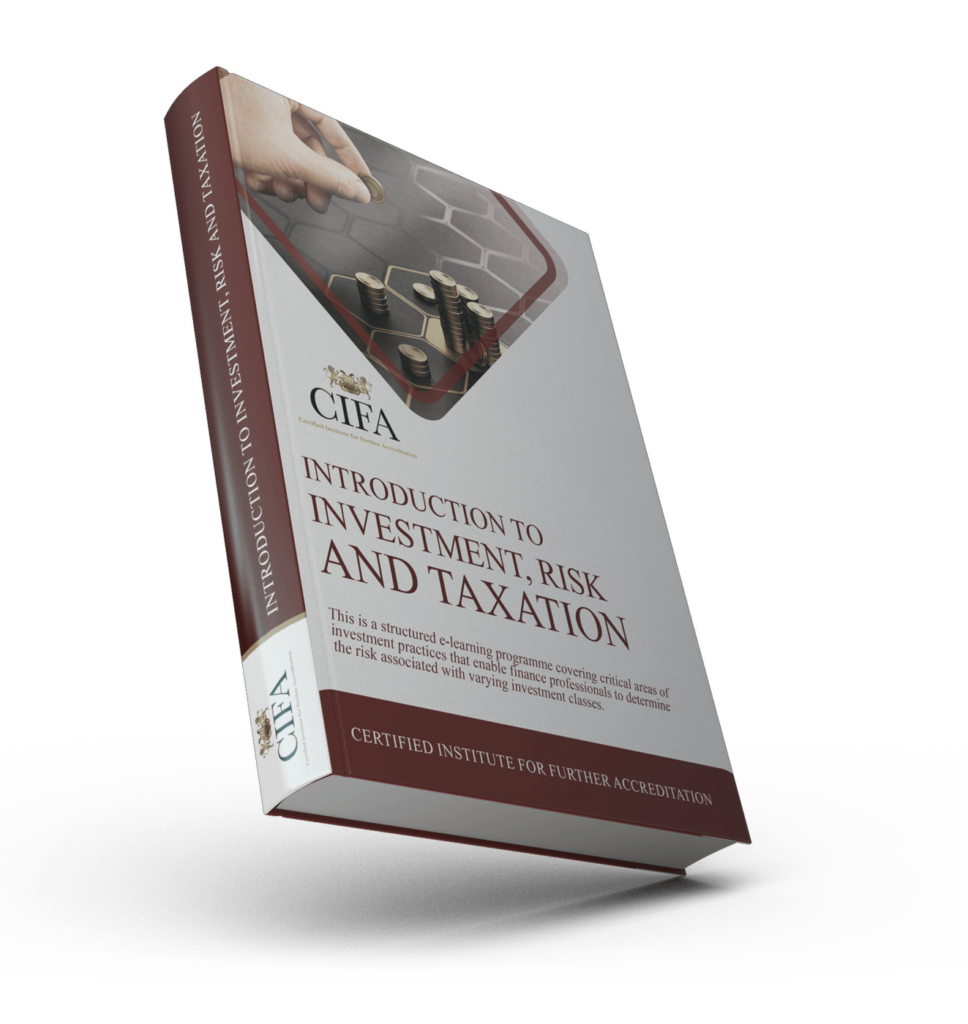Investment Risk & Taxation in the UK – CIFA.AC
Investing in the UK offers great opportunities, but it also comes with risks and tax implications that investors must understand to maximize returns and stay compliant. At CIFA.AC, we provide expert insights on managing investment risks and navigating UK taxation laws, helping individuals and businesses make informed financial decisions.
Understanding Investment Risk
Investment risk refers to the potential for losses in financial markets due to various economic, political, and industry-related factors. Effective risk management is crucial for building a resilient investment portfolio.
Types of Investment Risks
Market Risk:
Caused by fluctuations in stock prices, interest rates, and currency values.
Affects equities, bonds, and other securities.
Inflation Risk:
The purchasing power of investments decreases over time due to rising inflation.
Fixed-income assets, such as bonds, are particularly vulnerable.
Liquidity Risk:
Difficulty in selling investments at their fair market value.
Common in real estate, private equity, and alternative investments.
Credit Risk:
The risk that a borrower may default on financial obligations.
Relevant for bondholders and lenders.
Regulatory Risk:
Changes in UK laws and policies can impact investment performance.
Includes Brexit-related financial regulations and new tax policies.
Political and Economic Risk:
Economic downturns, geopolitical tensions, and government policies can affect investments.
Global and local factors influence market stability.
Strategies for Managing Investment Risk
Investors can adopt several strategies to mitigate risks and protect their portfolios:





UK Investment Taxation: Key Considerations
Taxation is a critical aspect of investing in the UK, as it affects the net returns on investments. Understanding the tax implications of different assets is essential for strategic financial planning.
1. Capital Gains Tax (CGT)
Applies to profits from selling investments such as stocks, property, and other assets.
Current CGT rates (2024-25):
10% for basic-rate taxpayers.
20% for higher-rate taxpayers.
28% for property investments (excluding primary residences).
Annual CGT Allowance: The first £3,000 of gains is tax-free.
Tax-efficient strategies: Using ISAs and pension funds to minimize CGT liability.
2. Income Tax on Investments
Dividends Tax:
Tax-free allowance: £500.
Dividend tax rates: 8.75% (basic rate), 33.75% (higher rate), and 39.35% (additional rate).
Interest Income:
Taxed as regular income if earned outside ISAs or pensions.
Personal Savings Allowance (PSA): £1,000 for basic-rate taxpayers, £500 for higher-rate taxpayers.
3. Inheritance Tax (IHT) on Investments
Standard rate: 40% on estates valued above £325,000.
Exemptions and Reliefs:
Business relief for certain investments.
Spousal transfer exemptions.
Trusts for estate planning.
4. Stamp Duty on Shares and Property Investments
Stamp Duty Reserve Tax (SDRT): 0.5% on share purchases above £1,000.
Stamp Duty Land Tax (SDLT): Varies based on property value and ownership structure.
Tax-Efficient Investment Strategies in the UK
To optimize returns, investors can leverage various tax-efficient strategies:

No tax on dividends, interest, or capital gains.
Annual ISA allowance: £20,000.
Maximizing Pension Contributions:
Tax relief on contributions up to £60,000 annually.
Tax-free growth within pension funds.
Utilizing Tax Allowances:
CGT allowance, PSA, and dividend allowance reduce tax burdens.
Investing in EIS & SEIS Schemes:
Enterprise Investment Scheme (EIS) and Seed Enterprise Investment Scheme (SEIS) offer tax breaks for investments in startups.
Holding Assets in Trusts:
Reduces inheritance tax liabilities.
Gifting Strategies:
Transfers assets tax-free under the seven-year rule.
The Impact of Brexit on UK Investment Taxation
Since Brexit, UK investment tax policies have evolved:
Changes in VAT rules for cross-border transactions.
Adjustments in financial regulations impacting investors.
New trade agreements affecting investment taxation.
How CIFA.AC Supports Investors
At CIFA.AC, we provide expert guidance and training on investment risk management and taxation strategies. Our services include:




Conclusion
Understanding investment risk and taxation in the UK is essential for making informed financial decisions. Investors must navigate risks, leverage tax-efficient strategies, and stay compliant with regulatory frameworks. At CIFA.AC, we equip individuals and businesses with the knowledge and tools needed to optimize their investment portfolios while minimizing tax burdens.


